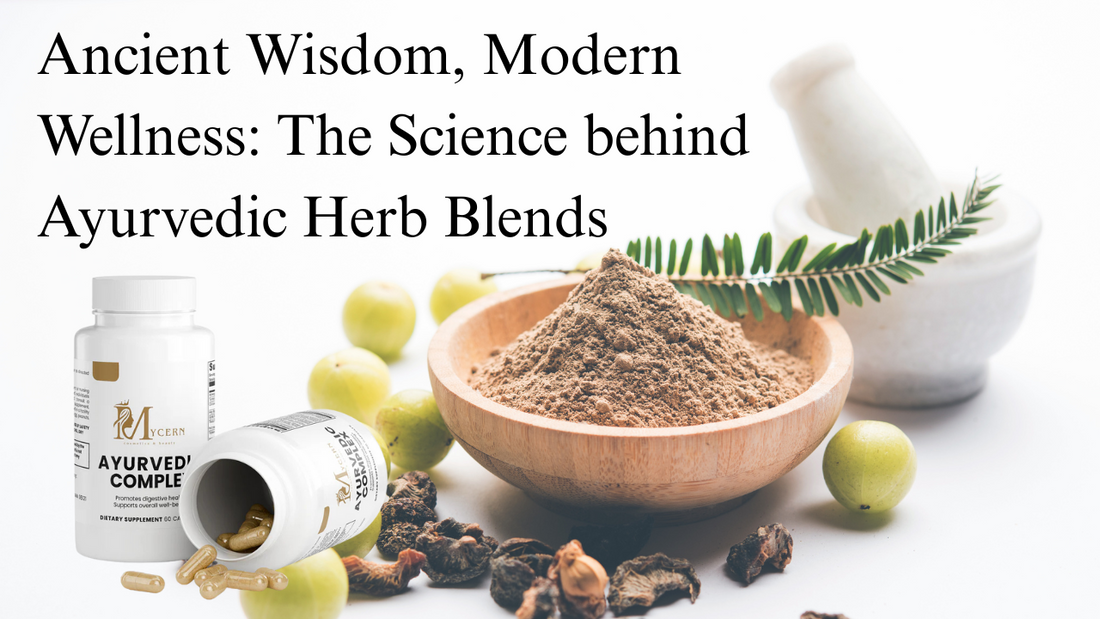
Ancient Wisdom, Modern Wellness: The Science behind Ayurvedic Herb Blends
There is a paradigm shift in choice of daily food, and related practices towards nutraceuticals, owing to factors such as low risk, potential value and, the therapeutic effects they seem to offer— Vasantha Lakshmi Mutnuri
Ayurveda, which means "knowledge of life," said that food is important for health and can be used as medicine or for therapeutic purposes [1].
Over time, this beautiful ancient system of healing has had an impact on many people. Many people now see it as a complete holistic way of life that can help heal health problems at their source and teach people how to stop them from worsening.
The Role of Ayurvedic Herbs
Many herbs are used in Ayurveda medicine to heal ailments, and their active compounds are extracted from leaves, roots, blossoms, and bark. These herbs were selected to promote internal equilibrium and assist in the body's natural functions [2]. Some benefits of using Ayurvedic herbs include the following:
· Approaches the individual as an integrated whole, choosing supportive interventions aimed at enhancing overall health rather than merely addressing specific symptoms [3].
· Emphasizes plant-based preparations, nutrition, and lifestyle; some believe this approach is more empathy [4].
· Enhances vitality and builds strength, consistent with the holistic philosophy of the system.
· Highlights the significance of sustaining internal harmony, which is believed to reinforce the body's natural defense mechanisms[4].

What the Science Says About the Effectiveness of Ayurvedic Medicine
The effectiveness of Ayurvedic methods is suggested by a number of carefully planned clinical trials and systematic reviews [5] [6]
· Findings from a 2013 clinical study that examined two Ayurvedic plant extract formulations against celecoxib and the natural product glucosamine sulfate in 440 patients with osteoarthritis in their knees. Similar improvements in function and pain reduction were observed for all four products.
· A formulation of five Ayurvedic herbs may aid persons with type 2 diabetes according to the results of a small, short-term clinical study involving 89 men and women.
· Another potent Ayurvedic ingredient, turmeric, is known for its anti-inflammatory properties. Curcumin, the key ingredient in turmeric, has been extensively studied and found to reduce the risk of heart disease, enhance brain function, and reduce inflammation.
· The advantages of Ayurvedic herbs, which have been utilized for thousands of years, have been validated by modern research, as demonstrated by these examples.
Mycern Ayurvedic Complex: Modern Wellness in a Capsule
Mycern Ayurvedic Complex is a simple, daily capsule that contains 17 herbs and offers the best of Ayurvedic tradition. It is created for optimal absorption and is sourced cleanly, making it a simple way to bring centuries-old treatment into modern routine.
References
6. Ayurvedic Medicine: In Depth. National Center for Complementary and Integrative Health, U.S.
About the Author
Dr. Hina Manzoor, Ph.D. in Biochemistry, is a nutraceutical specialist with over four years of experience as a Quality Control Manager in the supplement industry. She is passionate about bridging the gap between science and wellness, providing evidence-based insights to help readers make smarter health decisions.
